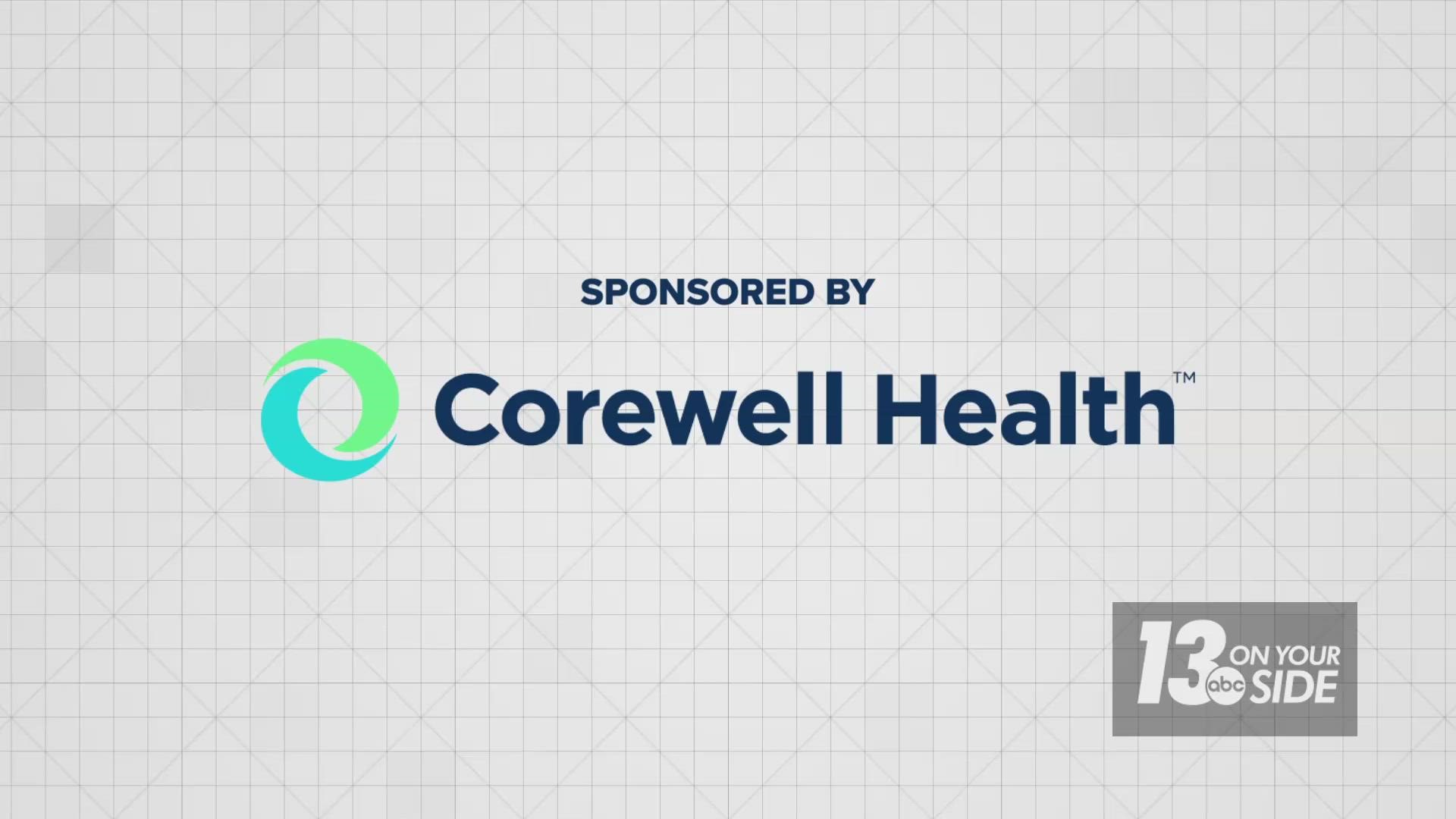GRAND RAPIDS, Mich. — Sudden cardiac arrest is a leading cause of death in the U.S., killing more than 300,000 people each year. As the name implies, it happens very quickly and, in most cases, is deadly. If you are with someone who appears to be suffering from a sudden cardiac arrest event it’s important to know the basics of CPR and the use of a portable defibrillator.
Corewell Health cardiologist, Dr. Andre Gauri, explained that sudden cardiac arrest is the sudden, unexpected loss of heart function, breathing and consciousness.
He said It usually results from an electrical disturbance in the heart that disrupts its pumping action, stopping blood flow to the rest of the body. Often it is because the heart is beating too fast and erratically, but sometimes can result because the heart is beating too slowly or not at all.
Dr. Gauri said symptoms are immediate and drastic and include:
- Sudden collapse
- No pulse
- No breathing
- Loss of consciousness
So who’s at risk? Dr. Gauri explained that SCA can strike persons of any age, gender, race, and even those who seem in good health, as evidenced by world class athletes at the peak of fitness, even children and newborns.
Dr. Gauri cautioned, if someone has any of the following risk factors or symptoms, he/she should discuss with a doctor whether further heart testing and/or evaluation by an electrophysiologist or cardiologist is necessary:
- History of early heart disease, heart attack or cardiac death in the family
- Unexplained fainting or near fainting or palpitations
- Chest pain, shortness of breath or fainting with exertion (such as during sports)
- Previously diagnosed heart failure or heart attack
- Cardiac risk factors such as high blood pressure, diabetes, obesity, smoking, or high cholesterol
As a bystander, it is critical to know how to respond if someone exhibits symptoms of sudden cardiac arrest.
Dr. Gauri said time is critical when you're helping an unconscious person who isn't breathing. Take immediate action.
- Call 911
- Perform CPR quickly. Push hard and fast on the person's chest — at the rate of 100 to 120 compressions a minute. Even if you haven't been trained in CPR, just continue chest compressions. Allow the chest to rise completely between compressions. Keep doing this until a portable defibrillator is available or emergency personnel arrive.
- Don't be a bystander! Taking immediate action is going to help that person because if nothing is done they may die.
- Use a portable defibrillator (AED) if one is available. If you're not trained to use a portable defibrillator, a 911 or emergency medical help operator may be able to guide you in its use. Some defibrillators will also talk you through it.
See a cardiologist to discuss any risk factors or symptoms you may have related to sudden cardiac arrest:
Corewell Health Cardiovascular Services
2900 Bradford St NE
Grand Rapids, MI 49525
855.7MYHEART
►Make it easy to keep up to date with more stories like this. Download the 13 ON YOUR SIDE app now.
If you would like more information about advertising with 13 ON YOUR SIDE, please contact Jeff Olsen at jolsen@wzzm13.com.

